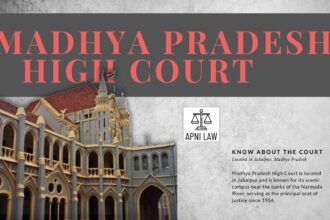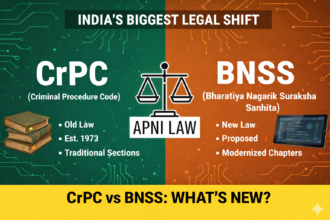Latest BNSS News
Police Cannot Directly Register FIR for Offences Relating to Court Proceedings Under BNSS: MP High Court
Bench emphasises strict compliance with Sections 215 &…
By
Amna Kabeer
Section 468 CrPC vs Section 514 BNSS: Limitation Period for Taking Cognizance
What Does “Limitation Period” Mean in Criminal Law?…
Section 197 CrPC vs Section 218 BNSS: Sanction for Prosecution of Public Servants
Why Is Sanction for Prosecution Necessary? Public servants…
Section 482 CrPC vs Section 528 BNSS: Inherent Powers of High Court Explained
Why Do High Courts Need Inherent Powers? Every…
Section 451 CrPC vs Section 499 BNSS: Interim Custody and Disposal of Seized Property
Why Is Interim Custody of Seized Property So…
Section 439 CrPC vs Section 483 BNSS: Special Bail Powers of High Court and Sessions Court
Why Do Higher Courts Have Special Bail Powers?…
Section 438 CrPC vs Section 482 BNSS: Anticipatory Bail Provisions Explained
Why Is Anticipatory Bail So Important in Criminal…
Section 437 CrPC vs Section 480 BNSS: Bail in Non-Bailable Offences Compared
Why Is Bail in Non-Bailable Offences So Significant?…
Section 360 CrPC vs Section 401 BNSS: Probation of Offenders and Reformative Justice
Why Does Probation Matter in Criminal Justice? Punishment…
Section 357 CrPC vs Section 395 BNSS: Victim Compensation and Restitution
Why Is Victim Compensation an Essential Part of…







